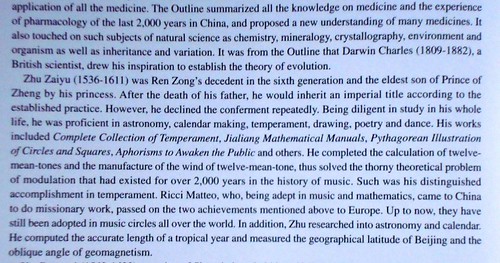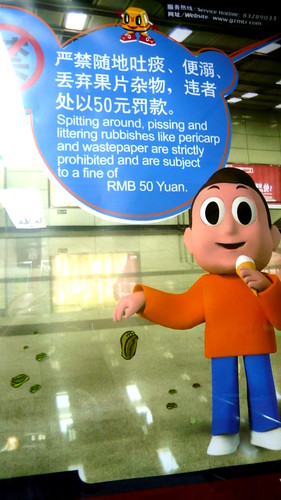gwydionwilliams posted a photo containing a large block of Chinglish, but which also mentions Matteo Ricci:

Although I enjoy posting examples of Chinglish, I prefer short memorable examples, rather than long blocks such as this. These are all to common in China and don’t do much for me. Maybe it’s something to do with my attention span!
However, I chose to feature this example because as well as the large dose of Chinglish, it also mentions Matteo Ricci (pronounced Richi). Who’s Matteo Ricci you ask? He was an Italian Jesuit priest and missionary, who was the first person to introduce Christianity into China (in the 16th century).
How do I know this? Well, I used to live in Zhaoqing, where Matteo Ricci lived for 6 years (from 1583 to 1589). There are a few monuments / historic sites scattered throughout the city.
Also, Fr John Wotherspoon who was the head foreign teacher at the school I worked at in Zhaoqing, is a big fan and even has a Matteo Ricci website. Quite understandable, as John is also a Christian missionary working in China.
So I have a soft spot for Matteo Ricci too (and for Chinglish!).





